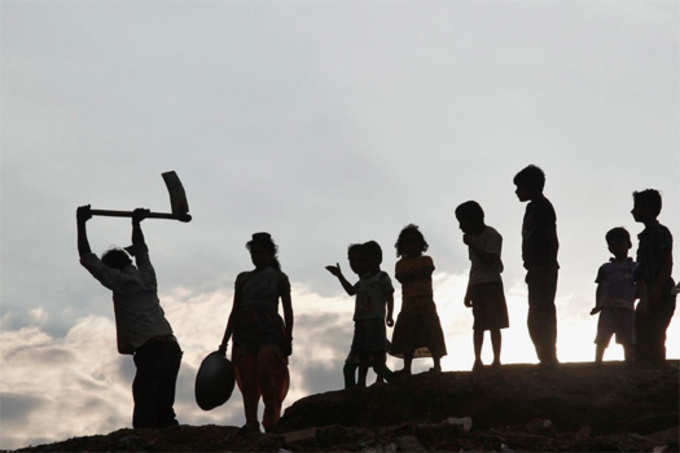 Someone utters the world ‘Slavery’ and one can map a picture of starving men and women in torn clothes made to work recklessly, kept in dark gallows, chained and tortured by their ‘masters’. To us in this day and age, it is more like an issue from a bygone era. Or that it only exists in countries ravaged by war and poverty. Even as such form of bonded labour has been abolished by the Indian law way back in 1976, yet it has manifested itself through the roots branching out to every corner of the Indian society today. It is what we call modern day slavery.
Someone utters the world ‘Slavery’ and one can map a picture of starving men and women in torn clothes made to work recklessly, kept in dark gallows, chained and tortured by their ‘masters’. To us in this day and age, it is more like an issue from a bygone era. Or that it only exists in countries ravaged by war and poverty. Even as such form of bonded labour has been abolished by the Indian law way back in 1976, yet it has manifested itself through the roots branching out to every corner of the Indian society today. It is what we call modern day slavery.Pronouncing India as the 'World’s Slave Capital', the Global Slavery Index last year said that out of 35.8 million people living in
The Index report sheds light on the immense challenges in India's modern slavery. “Across India's population of over 1.2 billion people, all forms of modern slavery, including inter-generational bonded labour, trafficking for sexual exploitation and forced marriage, exist. Evidence suggests that members of lower castes and tribes, religious minorities and migrant workers are disproportionately affected by modern slavery. Labour is particularly prevalent throughout India with families enslaved for generations."
Moreover, there are reports of women and children from India being recruited with promises of non-existent jobs and later sold for sexual exploitation, or forced into sham marriages. In some religious groups, pre-pubescent girls are sold for sexual servitude in temples. Recent reports suggest that one child goes missing every eight minutes; it is feared that some are sold into forced begging, domestic work, and commercial sexual exploitation.
Amid the dismal state of affair, there have been some ongoing efforts to tackle the situation in India:
- In 2013, the government amended the Indian Penal code to include specific anti-trafficking provisions.
-In 2014, the government expanded the number of police anti-human trafficking units across the country to 215 units, aiming to establish a unit in 650 districts.
-The judiciary and over 20,000 law enforcement have received training on victim identification, the new legal framework, and victim-centered investigations.
-NGOs and the civil society at large are actively involved in counseling, supporting and rescuing victims, often taking enormous risks.
However, a lot needs to be done to curb the menace that plagues our society and threatens the freedom of our people. “Traffickers are motivated by high profits and the low risk due to weak law enforcement and low levels of prosecution. To tackle human trafficking, prosecution and punishment of offenders must be pursued as well as legal action to seize the assets and profits of traffickers," said the study by the Freedom Fund and Thomson Reuters Foundation.
"While prosecutions alone will not bring an end to trafficking, there is immense potential to use legal strategies to deliver justice to victims, deter potential perpetrators and put traffickers out of business," it added.
As the world observes International Day for Abolition of Slavery today, here are some pictures reflecting the disappointing state of slavery in India even 68 years after it came out of the clutches of the British rule:
(Image credits: Reuters)